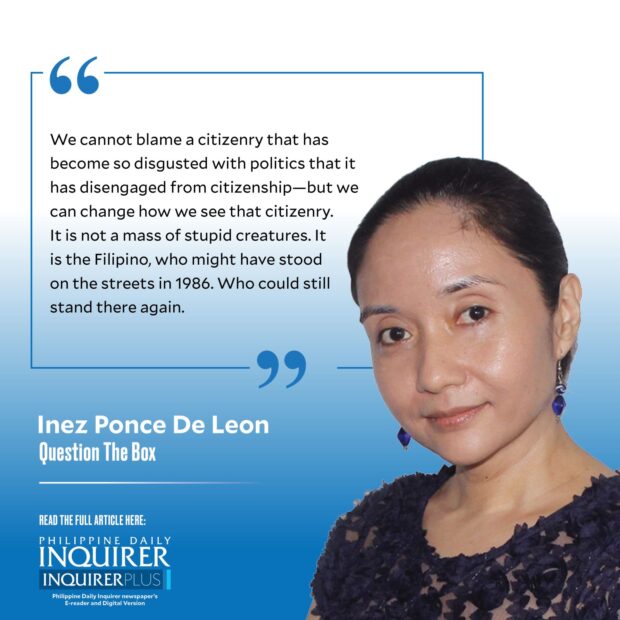The ongoing, meaningful revolution

Last week, our department hosted Dr. Josef Trappel, a journalist and scholar from the University of Salzburg, who presented the European Union’s (EU) social media regulation framework. He opened with Facebook’s beginnings, including the so-called 2011 “Facebook Revolution” which popular writing has credited with great changes across the Arab world.
But not revolutions, Dr. Trappel said: years after the protests, the same people (or their allies) are in power. The once-overthrown governments had themselves learned to use Facebook for their own, often nefarious purposes.
So what, then, is a revolution?
Dale Yoder, in a 1926 article for the American Journal of Sociology, framed revolutions as change: of those in power, society, the social order. These changes, however, occur only after people finally experience a deep discomfort with social institutions, and thereby attack the institutions they were once taught to respect. The first change, therefore, is a change in attitude.
In the same journal in 1944, Louis Gottschalk discussed the elements of a successful revolution: provocation, solidified public opinion, hopefulness, a feasible program of reform, leadership that both inspires the people and takes responsibility for the next steps—and the most important component: parties that want to maintain the status quo (e.g., the church, the army) withdrawing their support for the government.
Not all protests, then, become revolutions. In Sudan, Egypt, Libya, and Yemen, protests led to a transitional government populated by the old guard. Nesrine Malik, writing for The Correspondent, asks the more frightening question: is a revolution worth the pain if the protests simply lead to the same regime?
For that is the true burden of a revolution: the rebuilding after the “carnival.” Focus too hard on the street party, Simon Schama of Columbia University said in an NPR interview, and a country risks wasting all the energy that should have been directed toward truly changing corrupt institutions of power. Without a long-term strategy, a country post-revolution will sit in its own prison. The new government will become the beast it attempted to slay.
Malik disagrees with the requirement of a preemptive strategy. Revolutions, she says, are successful because they happened at all. A revolution arises spontaneously, often without a plan, only with a need to right injustice. No guns, bullets, or strategic planning can stop the instinct to walk into the arms of danger and demand change.
As Trappel continued his talk on revolutions, he showed photos of Edsa 1986. He was a freelance journalist then, covering the event, and then traveling the country to take photos and write about the Philippines post-revolution.
Everywhere he went, he said, people spoke freely: they discussed governance, leadership, politics. They had real conversations in schools, on the street, at home. There was an air not only of some abstract notion of freedom but liberty to speak one’s mind on matters of national import.
Because one could. Because one should.
At the end of his talk, Trappel compared different models of solving social problems. The American way, he said, was to sanction individuals for breaking the law, or educate them in order to fix them. In the EU, however, the laws penalized bad infrastructure, such as the large corporations that enable bad behavior (e.g., Facebook and its lack of policing that led to bullying and the proliferation of fake news).
The individual, he said, could not be wholly blamed for their actions if there was no social infrastructure in place to enable good behavior and discourage misconduct.
We often think of Edsa as the revolution of 1986, but what came after was more remarkable: we who once were imprisoned for dissent were free to speak out against injustice, knowledgeable of governance and the Constitution, unwilling to relinquish our powers of choice and thought.
Somewhere along the way, this liberty disappeared. Was it because of social media filtering the context out of current events? A broadcast media milieu that entertained people to a brainless stupor? A government that enabled corruption, ordered people to simply obey, penalized those who spoke the truth?
We cannot blame a citizenry that has become so disgusted with politics that it has disengaged from citizenship—but we can change how we see that citizenry.
It is not a mass of stupid creatures. It is the Filipino, who might have stood on the streets in 1986.Who could still stand there again.
It is the Filipino that we must listen to: to ask why they voted in certain ways, what their lives are like, what a government must do. It is the Filipino that we must speak to directly, rather than push information into with both arrogance and condescension.
We once had the gifts of listening and conversing, of valuing knowledge of and engagement in current affairs, of curiosity.
That was the real revolution. It is the real revolution. And we can let that story begin again.
iponcedeleon@ateneo.edu




















